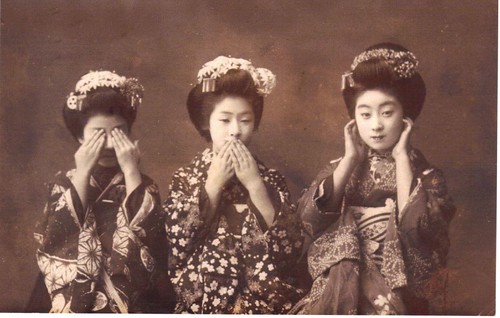Before anyone gets their panties in a knot, this will be followed by a post on 10 Ways America is Better than Israel. It's supposed to be a goofy list, so chill. Now, without further ado.
1. The fast food is better and vaguely more healthy. Sure, there's McDonald's and everything, but there's also cheap and fast shwarma, kabob and falafel, which always come with salad and pickles. If you'd prefer something with less fat, the major Israeli coffee chain, Aroma, serves a variety of healthy sandwiches and salads.
2. It's safe for high school students to go hang out around town at midnight. There are actually special late-night bus routes on weekends to help them get home.
3. Israel has a very "tea and cake" mentality. Children doing fundraising for their activities will sell pieces of cake instead of candy bars. The @ sign is called "strudel" in Hebrew. In fact, a recent romantic pop song defines the wilderness as a place without strudel.
4. People still listen to the radio! The most popular station seems to be Galgalatz, which is a combination of international (i.e. American) and Israeli pop music. Also, unlike the US, songs stay on the radio for a few years instead of just disappearing in the wake of the latest hit.
5. Exercise equipment in the park. A recent initiative installed a lot of exercise equipment into Israeli parks, disguised as playground equipment for adults.
6. Non-Ashkenazi Jews. Israel has them. It makes things more interesting.
7. Arab pastries. Americans are vaguely familiar with baklava, by which I mean they use cheap nuts and serve portions that are 4-5 times too large. Here you can get a nice little piece of baklawa after a meal, or you can buy an entire tray and hand pieces out to people in honor of your birthday. Also, there are desserts other than baklawa. My personal favorite is knafe, which is sweet cheese baked in between two layers of vermicelli noodles and drizzled with rose water. The best!
8. Fresh, local fruits and vegetables. It makes all the difference in the flavor.
9. People follow the news and know what's going on. Radio stations play 5 minutes of news every hour. News shows actually provide analysis, and anchors will argue with the politicians they are interviewing (a thing of beauty).
10. Streets named after medieval linguists. Maybe it's just me, but I find that ridiculously exciting.
1. The fast food is better and vaguely more healthy. Sure, there's McDonald's and everything, but there's also cheap and fast shwarma, kabob and falafel, which always come with salad and pickles. If you'd prefer something with less fat, the major Israeli coffee chain, Aroma, serves a variety of healthy sandwiches and salads.
2. It's safe for high school students to go hang out around town at midnight. There are actually special late-night bus routes on weekends to help them get home.
3. Israel has a very "tea and cake" mentality. Children doing fundraising for their activities will sell pieces of cake instead of candy bars. The @ sign is called "strudel" in Hebrew. In fact, a recent romantic pop song defines the wilderness as a place without strudel.
4. People still listen to the radio! The most popular station seems to be Galgalatz, which is a combination of international (i.e. American) and Israeli pop music. Also, unlike the US, songs stay on the radio for a few years instead of just disappearing in the wake of the latest hit.
5. Exercise equipment in the park. A recent initiative installed a lot of exercise equipment into Israeli parks, disguised as playground equipment for adults.
6. Non-Ashkenazi Jews. Israel has them. It makes things more interesting.
7. Arab pastries. Americans are vaguely familiar with baklava, by which I mean they use cheap nuts and serve portions that are 4-5 times too large. Here you can get a nice little piece of baklawa after a meal, or you can buy an entire tray and hand pieces out to people in honor of your birthday. Also, there are desserts other than baklawa. My personal favorite is knafe, which is sweet cheese baked in between two layers of vermicelli noodles and drizzled with rose water. The best!
8. Fresh, local fruits and vegetables. It makes all the difference in the flavor.
9. People follow the news and know what's going on. Radio stations play 5 minutes of news every hour. News shows actually provide analysis, and anchors will argue with the politicians they are interviewing (a thing of beauty).
10. Streets named after medieval linguists. Maybe it's just me, but I find that ridiculously exciting.



